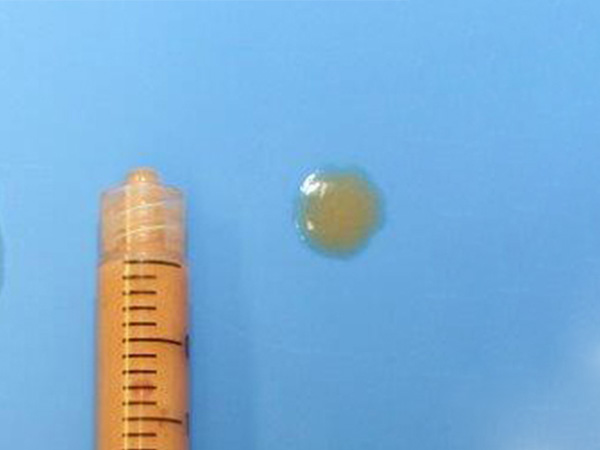
Aesthetic surgery
LIPOFILLING – AUTOLOGOUS FAT GRAFTING FOR OPTICALLY PERFECT RESULTS
Lipofilling refers to the method by which autologous fat is removed and inserted elsewhere. This is usually done to restore volume to the body. For example, lipofilling is often used to treat wrinkles on the face or to create more voluminous lips. However, lipofilling can also be used to rebuild the breast or inject scars. This method is particularly suitable in the aesthetic field, as it not only ensures beautiful and particularly long-lasting results, but also contributes to the regeneration of the surrounding tissue.
You are in particularly good hands at the ETHIANUM if you are interested in lipofilling. For over ten years, the research group led by clinic founder Prof Dr Günter Germann and PD Dr Eva Köllensperger has been dedicated to the potential of autologous fatty tissue. A particular focus is on the regenerative properties of the body’s own stem cells from adipose tissue. You can find more information under “The Regenic® principle”.
Our constant involvement in this field of research and our international contacts with scientists and research institutions ensure that only the most modern and gentle procedures are used at the ETHIANUM. We attach particular importance to the safety of autologous fat treatment. This is why the specialists in plastic and aesthetic surgery at the ETHIANUM can look back on many years of experience with autologous fat transplants. Their expertise enables them to perform liposuction to harvest autologous fat in the gentlest possible way. The specialists are also masters of their trade when it comes to application. They know what is important for injections, how finely fat should be prepared depending on the area of application and what needs to be considered during modelling.
We have summarised the advantages that lipofilling already offers today. Find out in detail about the possible applications and methods. And find out why we are still cautious about the use of autologous fat for restoration or filling in some areas.

Aesthetic surgery
LIPOFILLING – THE ADVANTAGES OF USING AUTOLOGOUS FAT
Many factors are decisive for the success of lipofilling treatment. Knowledge of the optimal procedure in each individual case, hygiene and care are among the most important. The same applies to experience and expertise in the removal, preparation and injection of autologous fat. The client’s own behaviour after the lipotransfer is also decisive for success.
In principle, lipofilling offers the following advantages:
- Everyone has their own body fat, i.e. autologous fat. The autologous fat is always available and can be gently harvested, processed and injected into the desired area.
- An autologous fat transplant does not harbour any risk of nodule formation, rejection reactions or allergies. The body does not recognise autologous fat as a foreign body.
- Autologous fat consists of mature fat cells, also known as adipocytes. It also consists of extracellular matrix, capillaries and the stromal fraction (SVF), in which the fat stem cells are also incorporated. These stem cells, which are concentrated in nanofat, have regenerative powers and can sustainably reinforce the initial effect of lipofilling. The skin structure is thus improved in the long term. The use of the body’s own cells leads to a large proportion of the implanted cells growing back into the new body environment.
- 45 – 70 % of the injected fat is retained and ensures the desired effect for a long time. Volume deficits are compensated for. More fullness is created exactly where it was desired and the effect is a smoother, fresher appearance.
Aesthetic surgery
THE MOST FREQUENTLY ASKED QUESTIONS ABOUT LIPOFILLING
Lipofilling – Where does autologous fat transplantation make sense?
Please bear in mind that autologous fat transplants are usually not medically necessary, but are used purely for aesthetic reasons. Only scar treatment may be medically necessary. If you are interested in scar treatment, you can find all the information you need here.
This is precisely why medical specialists bear a high level of responsibility. The information provided here is of a basic nature. Depending on your wishes and expectations, your specialist will advise you individually on lipofilling and also advise you against it if the prospects of success are not optimal in individual cases.
Basic areas of application are
Lipofilling in the face
- Tactile wrinkles around the mouth
- Narrow lips or equalisation of the lip shape
- Nasobial folds, i.e. wrinkles to the left and right of the nose
- Sunken cheeks
- Frown lines between the eyebrows in the lower part of the forehead
- The eye area around the lower eyelids and temples
Lipofilling on the hand
- Especially for the treatment of fan formation on the back of the hand
- Reduction of pigmentation spots on the hands
Lipofilling for scar treatment
- Particularly suitable for retracted (atrophic) scars
Lipofilling in the female genital area
- To enlarge the labia
- Use after tightening procedures
Lipofilling in the breast
- For smaller defects and irregularities after previous breast surgery
- Breast augmentation with autologous fat
Please note our explanations below on the reservations regarding the use of autologous fat in cancer patients.
Lipofilling – How is the autologous fat removed?
Autologous fat is harvested by liposuction. Specialists remove fat from the tissue through tiny, inconspicuous incisions using special, blunt cannulas. A local anaesthetic is usually sufficient for this. Water-jet assisted liposuction (WAL method or body jet) has proven to be advantageous. It is particularly gentle and increases the growth rate of the transplanted fat cells. In any case, however, liposuction is deliberately performed with very little negative pressure so as not to damage the fat cells.
Lipofilling – How the fat is processed
Lipofilling – where we have reservations
Based on our research work and the resulting expertise, we have reservations about the use of autologous fat for breast augmentation shortly after cancer surgery. This is because there are indications that the stem cells transferred with the fatty tissue can awaken residual, dormant tumour cells. Previous research results indicate that the way in which the fatty tissue is processed before transplantation could play a role. For this reason, we at the ETHIANUM generally only offer breast reconstruction with autologous fat two years after completion of acute breast cancer treatment. This is in line with current guidelines. The aim is to ensure that there is no more local tumour growth. International studies are currently underway to determine whether this interval can be shortened.
YOUTUBE
VIDEO CONSULTATION
What can autologous fat transplantation, or “lipofilling”, be used for?
You are currently viewing a placeholder content from YouTube. To access the actual content, click the button below. Please note that doing so will share data with third-party providers.
More Information




